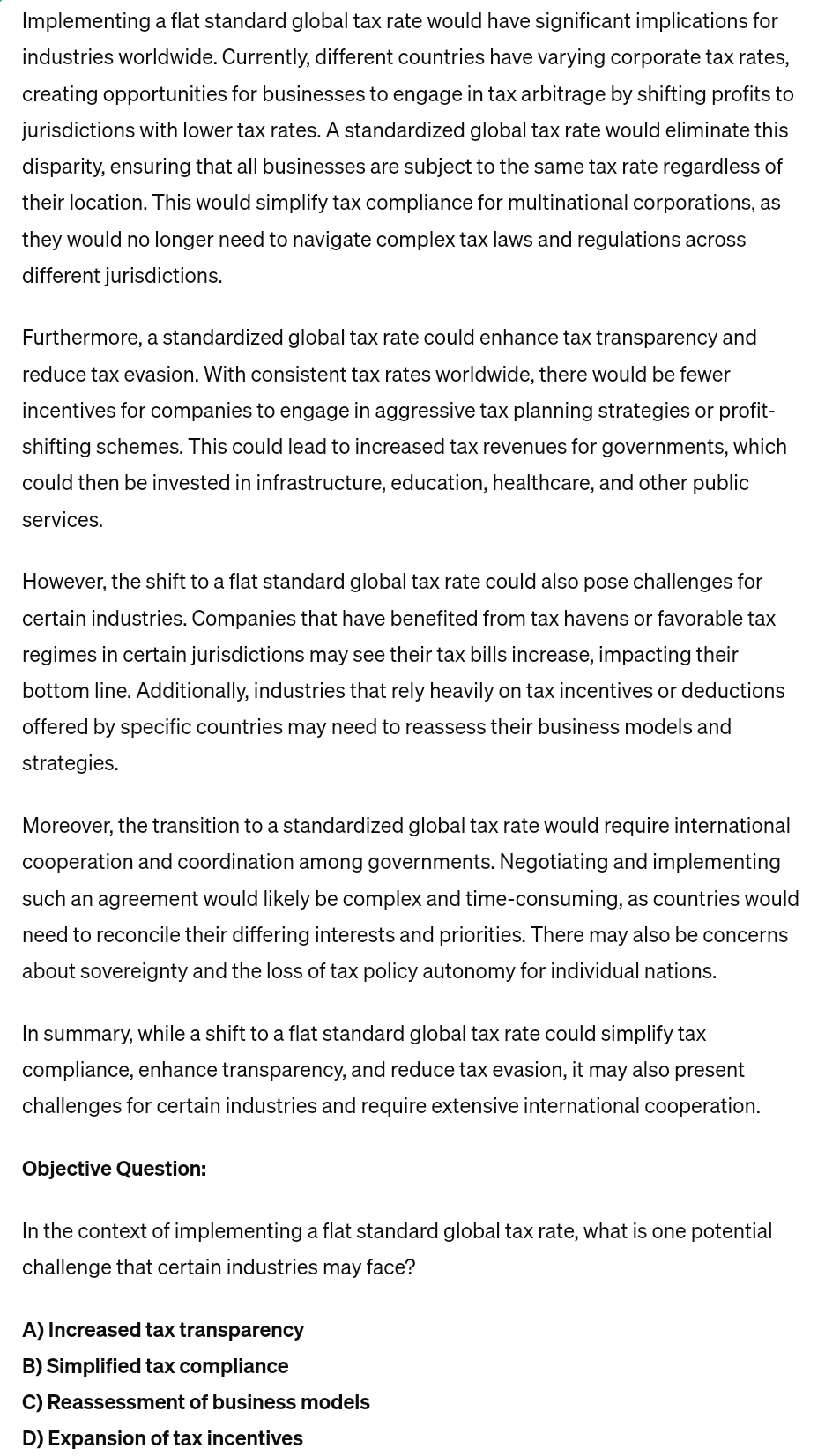Answered step by step
Verified Expert Solution
Question
1 Approved Answer
Implementing a flat standard global tax rate would have significant implications for industries worldwide. Currently, different countries have varying corporate tax rates, creating opportunities for
Implementing a flat standard global tax rate would have significant implications for industries worldwide. Currently, different countries have varying corporate tax rates, creating opportunities for businesses to engage in tax arbitrage by shifting profits to jurisdictions with lower tax rates. A standardized global tax rate would eliminate this disparity, ensuring that all businesses are subject to the same tax rate regardless of their location. This would simplify tax compliance for multinational corporations, as they would no longer need to navigate complex tax laws and regulations across different jurisdictions.
Furthermore, a standardized global tax rate could enhance tax transparency and reduce tax evasion. With consistent tax rates worldwide, there would be fewer incentives for companies to engage in aggressive tax planning strategies or profitshifting schemes. This could lead to increased tax revenues for governments, which could then be invested in infrastructure, education, healthcare, and other public services.
However, the shift to a flat standard global tax rate could also pose challenges for certain industries. Companies that have benefited from tax havens or favorable tax regimes in certain jurisdictions may see their tax bills increase, impacting their bottom line. Additionally, industries that rely heavily on tax incentives or deductions offered by specific countries may need to reassess their business models and strategies.
Moreover, the transition to a standardized global tax rate would require international cooperation and coordination among governments. Negotiating and implementing such an agreement would likely be complex and timeconsuming, as countries would need to reconcile their differing interests and priorities. There may also be concerns about sovereignty and the loss of tax policy autonomy for individual nations.
In summary, while a shift to a flat standard global tax rate could simplify tax compliance, enhance transparency, and reduce tax evasion, it may also present challenges for certain industries and require extensive international cooperation.
Objective Question:
In the context of implementing a flat standard global tax rate, what is one potential challenge that certain industries may face?
A Increased tax transparency
B Simplified tax compliance
C Reassessment of business models
D Expansion of tax incentives

Step by Step Solution
There are 3 Steps involved in it
Step: 1

Get Instant Access to Expert-Tailored Solutions
See step-by-step solutions with expert insights and AI powered tools for academic success
Step: 2

Step: 3

Ace Your Homework with AI
Get the answers you need in no time with our AI-driven, step-by-step assistance
Get Started


